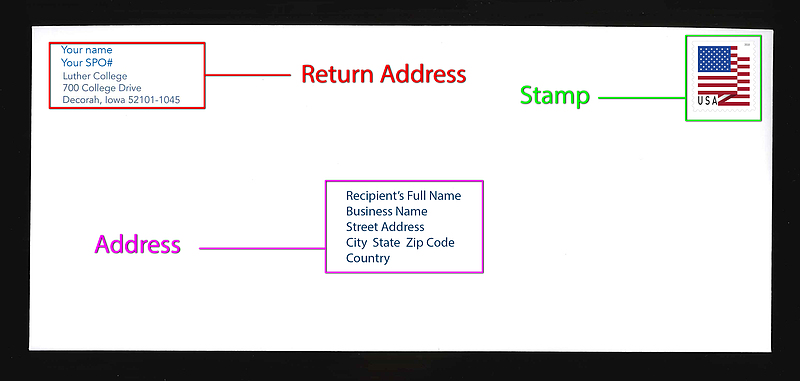What is the meaning of noel ?
Every year at Christmas, people sing songs like “The First Noel,” and many of them are unsure of what a “noel” actually is. Joyeux noel is French for “Merry Christmas.” The Middle English term nowel, which Webster’s 1828 Dictionary characterized as “a cry of delight or Christmas song,” is where our current English word originates. The Old French term nael, which means “Christmas season,” may have been the source of the word’s French noel origins. This in turn comes from the Latin word Natalis, which means “birth.” It was only natural for people to refer to Christmas as the “nativity” or the “birth” as it is the celebration of the birth of Christ.

Noel Name meaning

The word “Noel” is frequently used to refer to Christmas. It is easily incorporated into Christmas vocabulary, appearing on everything from greeting cards to carols, but what exactly does Noel mean? Dialects and contributions from around the globe have become possibly the most important factor with regards to what this well-known word truly implies in hymns, for example, “The First Noel” producing a hello from Bethlehem a long time back to our cutting-edge age.
English speakers borrowed the word noel from French. It can be traced further back to the Latin word Natalis, which can mean “birthday” as a noun or “of or relating to birth” as an adjective. (The English adjective natal has the same meaning and is also an offspring of Natalis.)
Noel is a word that is frequently used to refer to Christmas. What does Noel actually mean? It fits neatly into Christmas terminology and is used in both carols and greeting cards. What this well-known phrase actually signifies in carols has been influenced by languages and ideas from all across the world, with songs like “The First Noel” serving as a greeting from Bethlehem two thousand years ago to the present.
Origin

Old French for “of or born on Christmas,” Noel is a name.
Noel is a common girl’s name choice as well as a name for boys.
Popularity

The name Noel is not particularly well known. Its popularity peaked in 1938 when it ranked as the 267th most popular boy’s name in the United States. The name currently ranks 337th with the Social Security Administration, indicating that it is not very common (3). 17 thg 9, 2022
Meaning and Etymology of Noel
There are numerous root meanings for the word “Noel.” News is what the French word Nouvelles signifies. The term “novel,” which means “shout of gladness,” is the word’s English etymology. The well-known phrase “the first noel the angels did speak, Was to certain lowly shepherds…”, which means good “news,” illustrates this. The word Natalis, which means “birth,” also derives from Latin, the mother tongue of the Romance languages. The early 4th century records of Christus Natus, which was celebrated on December 25th and known as the day of “Today Christ is born,” are connected to the more correct meaning of the holiday.
These dialects would serve as a strong foundation for the setting in which Noel is so often employed today.
The word’s first widespread usage emerged in Europe during the Middle Ages. The term was first used in the context of songs celebrating the birth of Christ in French and English carols. The classic Christmas song’s music is believed to have originated in France in the 1200s, but it wasn’t until the 1800s that the song’s lyrics would become so well-known.
“The First Noel”

The Christmas Carols Ancient and Modern book by William B. Sandys first made “The First Noel” carol available in 1823. It is reported that during the holiday season, residents of the town would assemble to pray and sing these carols in remembrance of the birth of Christ. By recounting the story over and again, many legends, songs, and traditions from this time were passed down from one generation to the next. The printing press, which was created in the 1400s, made it possible to produce the Bible in more languages, which facilitated the spread of these principles. Over time, more lyrics were added, creating the timeless melody that is still sung today.
The song’s lyrics, which serve as its foundation, are based on the narrative found in Luke 2:8–14, where the Angels came to the shepherds to announce the birth of Christ:
“And there were shepherds living out in the fields nearby, keeping watch over their flocks at night. An angel of the Lord appeared to them, and the glory of the Lord shone around them, and they were terrified. But the angel said to them, “Do not be afraid. I bring you good news that will cause great joy for all the people. Today in the town of David a Savior has been born to you; he is the Messiah, the Lord. This will be a sign to you: You will find a baby wrapped in cloths and lying in a manger.” Glory to God in the highest sky, and on earth peace to those on whom his favor falls, said “Glory to God in the highest heaven, and on earth peace to those on whom his favor rests.” (Luke 2:8-14).
The reflected root meanings of the variants of Noel all come into context of lyrics. “The first Noel the angels did sing was to certain poor shepherds in fields where they lay.” The roots of Noel combine to declare the noises of praise to the Lord by reflecting the Latin root of birth, the English root of joyful noise of the arrival, and embracing the French meaning of news.
The chorus “Noel, Noel, Noel, Noel, born is the King of Israel” is repeated throughout the song as a plea to share and reiterate the blessed Good News of the coming of the promised Messiah on earth. The epilogue serves as a reminder of Christ’s suffering:
“Then let us all with one accord
Sing praises to our heavenly Lord,
That hath made heaven and earth of naught,
And with his blood mankind has bought.”
We are inspired to sing together about both His birth and resurrection because we know that the birth of Christ is significant because of His death and resurrection.
“And to the earth it gave great light
And so it continued both day and night.”
Noel should not just be used during the holiday season; it should be a way of life. In Matthew 28:19–20, Jesus exhorts,
“Therefore go and make disciples of all nations, baptizing them in the name of the Father and of the Son and of the Holy Spirit, and teaching them to obey everything I have commanded you. And surely I am with you always, to the very end of the age.”
Such a request is reflected in singing the joy of Noel over and over again during the Christmas season. The joyful reality of what Noel stands for must be generously worn on our hearts and spoken on our lips all year round, not just during the Christmas season when we sing and share. The Good News of Christ’s Second Coming to Save Us All is symbolized by Noel.
















